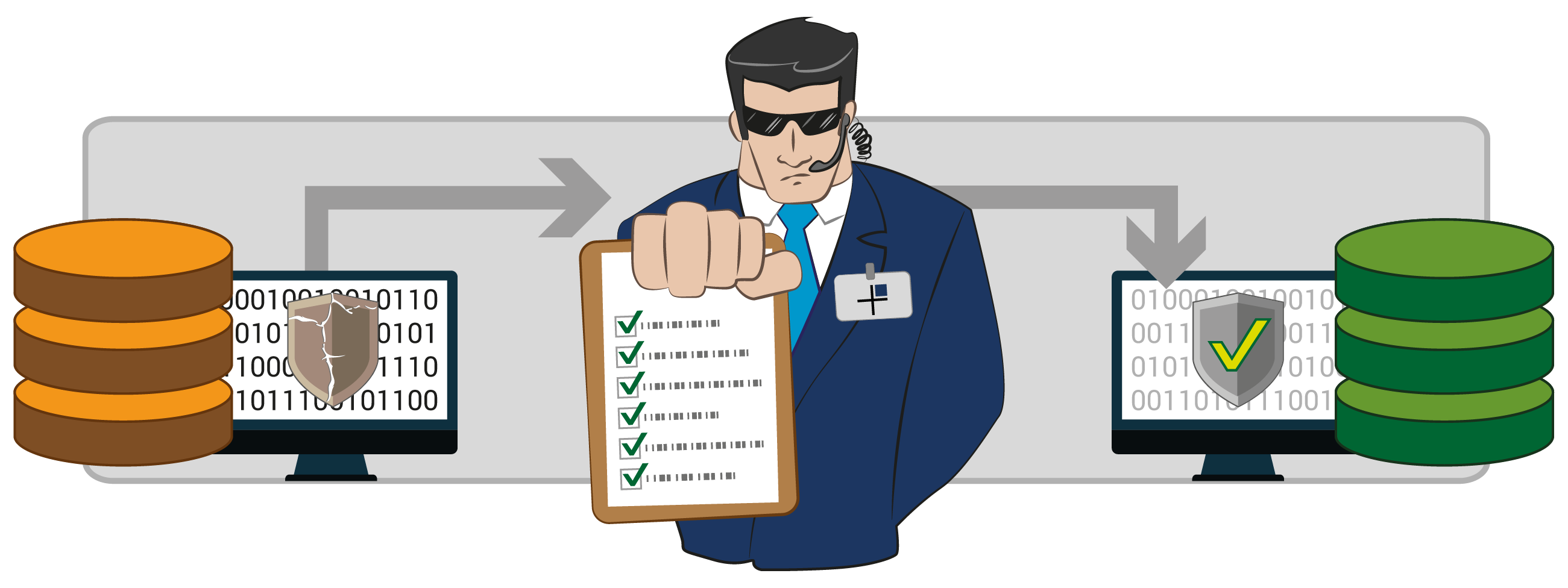PostgreSQL Database Security Audit
Identify and address security threats to harden your database.
Determining breach points in your database is the first step towards improving the security of your infrastructure to avoid being impacted by vulnerabilities that can be prevented.
Hardening your database will assist in your efforts to comply with regulations such as GDPR, PCI, and DSS. Addressing vulnerabilities can prevent breach due to malicious attacks such as ransomware or database injection, as well as human error.
5 Good Reasons to get a PostgreSQL Database Security Audit
- Ensure SLAs are met. Data security is key for any organization’s credibility. Ensuring that SLAs are met maintains integrity with customers while also meeting long term business goals.
- Classify Vulnerabilities. All systems are vulnerable to attack. Identifying vulnerabilities and securing them properly will help prevent system breach.
- Validate Security of Backups and Backup Channels.Backups of data are just as important as the live data and must meet SLAs, so it’s important to audit and secure the backups and backup channels regularly.
- Identify Outdated Software and Libraries. Outdated software and libraries are practically an invitation for hackers. It is important that the database and all libraries it is dependent on are up to date so nothing can be breached via known security holes.
- Optimize Logging/Auditing. Ensure logging and auditing configurations are capturing the necessary information to prevent a breach or identify where/when a breach happened if one did occur.
What’s Covered?
A Security Audit with 2ndQuadrant evaluates and provides recommendations for the security of your database in the following areas to avoid a breach.
- Operating System Security. To have a secure database you must first have a secure operating system. Our experts will recommend measures you can take so that your system’s OS is protected from remote hacking or malware.
- Network Security Strategy. We analyze firewall levels and provide a customized strategy for implementing the measures that need to be in place to prevent any unauthorized access to your system.
- User Authentication Levels. This is the most common method of identifying unauthorized access. Our experts look at your business and recommend unique authenticating levels to ensure each user only has the required access.
- Schema Level Security. We analyze user entry points and recommend a method for defining privileges within the system schemas to establish clear boundaries and prevent trespassing.
- Data Encryption. Encryption is another way to protect the information your database hosts. Encryption is a wall of complex code which requires a security key in order to gain access. We provide recommendations on how to best encrypt your system so potential hackers can’t decipher your data..
- Backup Security. Backups of data are a frequent target of attackers. We evaluate backups and validate that their entry points are as secure as the primary data.
- Row Level Security. We will suggest policies that specify the information each user is allowed to access. We review the way each type of user is able to interact with your data and recommend a plan to restrict access for users when it is not needed.
Why 2ndQuadrant?
2ndQuadrant provides PostgreSQL solutions for the Enterprise. Our support engineers have over 100 years of combined code contributions to the PostgreSQL project, making us the only company to contribute enterprise features to all of the last 13 releases.
This is paired with 17+ years of hands-on experience through client engagements and allows us to integrate customized solutions with our customers – making 2ndQuadrant the Gold Standard for PostgreSQL products & services.
Who better to evaluate the security of your database than the people who have developed the security features to prevent such attacks?
Need More Help?
Want more information on how to secure your PostgreSQL server against external and internal threats? Complete the contact form below and we will have someone contact you as soon as possible!


